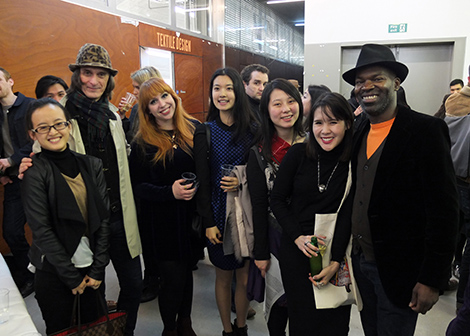In advance of tonight’s talk by curator and former Director of the Venice Biennale Robert Storr at Chelsea College of Art, this short piece by Dr David Dibosa, Course Director of the college’s MA Curating and Collections takes a moment to consider what it means to want to ‘curate’.
I recently confessed to a student that I ignore people when they tell me: ‘I want to be a curator’. Honestly, it’s a passion-killer. I can be at a private view in the middle of a most engaging conversation, or having dinner after a show or even whispering sweet nothings after making love and then it comes, the dreaded phrase, ‘have I ever told you, I wanna be…’
I shouldn’t be so harsh about it. In the dim and distant years of my youth, I, too, wanted…well, I wanted many things but the scales fell from my eyes following a frank conversation with a friend. She had just published her first novel, to great acclaim, whereas I was about to consign my third attempt to the bottom drawer. I had to smother my envy even to begin to ask her,’how did you do it? I’ve wanted to be a novelist ever since I was a kid. I’ve been working at it for years now but still I’m getting nothing but rejections’. She was a sweet friend. She just shrugged off my obvious jealousy and said: ‘David, I never wanted to be a novelist. I just had a story that I needed to tell.’
So it’s not about wanting to be as it is about needing to do. Needing to nurture a child is what makes one a mother; needing to treat illness is what makes one a doctor; needing to care for the sick is what makes one a nurse. So what’s the need that makes someone a curator? If the clue is in the name ‘cure’, what does a curator need to cure?
Some experts like Yale Professor Robert Storr reflect on the caring origins of the term: curators, like curates, were charged with ‘care or cure of the soul’. The keeping of meaningful or even sacred objects was part of that care. The emphasis on ‘caring’ has been something that Storr has moved away from, though. The endless systems that have been set up around the keeping of important objects means that nowadays the caring curator is in danger of becoming something else: little more than a bureaucrat wrapped up in the red tape of do’s and don’ts, strait-jacketed by risk assessment and gagged by legal constraint. Professor Storr wants to free us from all that. Many years ago now he encouraged us to move away from the reality of curators to the possibility of ‘exhibition-makers’. I like his style: it sounds stupid to say, ‘I want to be an exhibition-maker’. But ‘I want to make exhibitions’ or even better, ‘I need to put on a show’, well, that’s music to my ears.
Professor Robert Storr, Dean of Yale School of Art will be speaking at Chelsea College of Arts tonight, Thursday 27 November 2014.
Read about Robert Storr on the Chelsea College of Arts blog.
Find out more about David Dibosa on his research profile page.
Find out more about Ma Curating and Collections at Chelsea on our course page.

